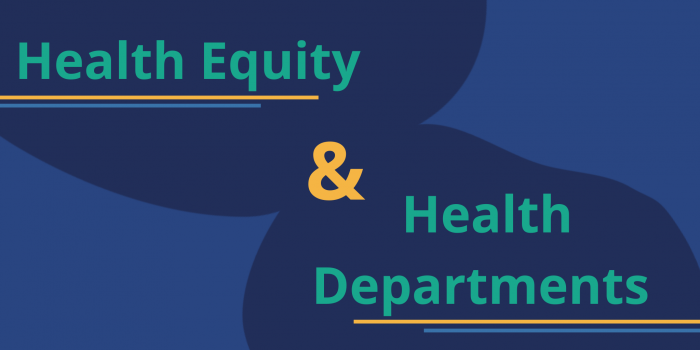Health Equity and Health Departments
Examples of how health departments and STD programs are incorporating health equity into their work across the country

Colorado
COVID-19 Health Equity Response Team
Recognizing that people of color are disproportionately affected by the COVID-19 virus, in April 2020 Governor Polis established the COVID-19 Health Equity Response Team, headed by the Office of Health Equity. This response team focuses specifically on tackling these inequities to prevent the gaps from widening and ultimately saving lives.
Los Angeles
Community Prevention and Population Health Taskforce
In August 2015, the Taskforce was formed and charged with advising the LA County Board of Supervisors on critical issues and opportunities to improve the health and wellbeing of LA County residents, with a focus on advancing health equity by influencing the structures and systems that generate the preconditions for healthy people in healthy neighborhoods.
Massachusetts
Anti-Racism Advisory Committee
The Boston Public Health Commission developed an Anti-Racism Advisory Committee, requiring all staff to participate in racial justice and health equity training, and is creating accountability mechanisms to ensure that their workforce reflects the city’s population.
New York City
Race to Justice Initiative
The New York City Department of Health and Mental Hygiene (NY) launched a “Race to Justice” initiative to reform internal policies, practices, and operations to advance racial equity and social justice across the Department. The initiative builds staff skills to address racism, implements policies to lessen the impact of structural oppression, and strengthens collaborations with communities across the city.
Ohio
Community Health Improvement Plan
The Cuyahoga County Board of Health, Ohio, worked with a multisectoral consortium to develop an equity-focused Community Health Improvement Plan (CHIP). Their CHIP identifies health equity as a guiding principle and tackling structural racism as 1 of 4 strategic priorities.
Virginia
COVID-19 Health Equity Working Group
In March 2020, the Health Equity Working Group was established and they meet each week to review policies that are proposed and/or enacted to determine how vulnerable populations in the Commonwealth are (or are likely to be impacted by COVID-19). The Health Equity Working Group is an innovative coalition is embedded at the senior-level of Virginia’s unified command structure for the COVID-19 public health crisis, working to apply a health equity lens to the Commonwealth of Virginia’s COVID-19 response.
Wisconsin
Building Capacity to Address Health Equity
Public Health Madison & Dane County, Wisconsin, has worked to build collective understanding and capacity across the health department and with other government agencies and community organizations to address racial equity. This has resulted in development of an internal health and racial equity team; a strategic plan with explicit equity goals; and application of racial equity analyses to programs, policies, and plans.
For more health equity resources, visit healthequityguide.org